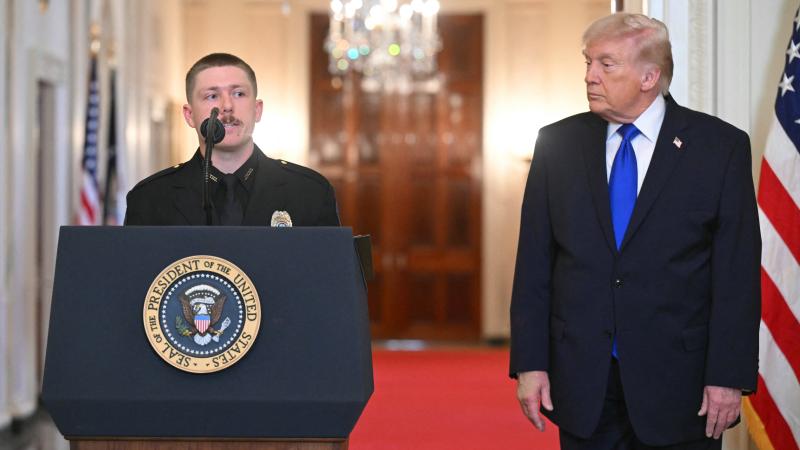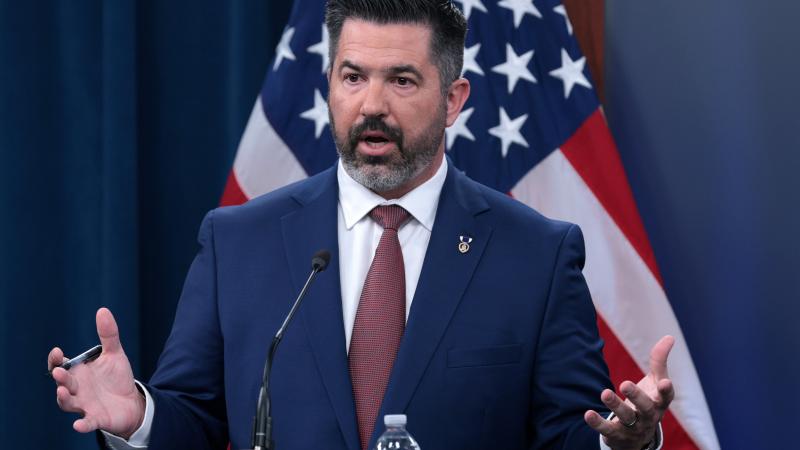24 state attorneys general challenge Biden's vaccine mandate for private sector employees
Law enforcement chiefs call order "a threat to individual liberty" and "a public health disaster that will displace vulnerable workers and exacerbate a nationwide hospital staffing crisis."
Twenty-four Republican attorneys general, led by South Carolina AG Alan Wilson, have joined a coalition to stop President Joe Biden's recent order that the Occupational Safety and Health Administration (OSHA) mandate that private sector employers with 100 or more employees require them to receive a COVID-19 shot, submit to weekly testing, or lose their jobs.
The order, the AGs argue, would drive some workers to leave their jobs (in an already tight labor market not yet recovered from last year's shutdowns) — including those in the healthcare industry.
Calling Biden's plan "disastrous and counterproductive," the AGs' letter warns the "vaccination mandate represents not only a threat to individual liberty, but a public health disaster that will displace vulnerable workers and exacerbate a nationwide hospital staffing crisis, with severe consequences for all Americans."
Nurses have already been refusing vaccine mandates imposed by their employers in many states, and filed lawsuits arguing their natural immunity protects them and others. After working for over a year in hospitals and urgent care centers being exposed to those who had the coronavirus, plaintiffs in several lawsuits argue they were considered heroes. Now, they're losing their jobs or being vilified for choosing not to take an experimental drug only available, in some cases, through emergency use authorization, according to their complaints.
Biden's mandate doesn't include exemptions for those who work remotely, have religious objections or health concerns, or have already obtained natural immunity following recovery from the virus.
The attorneys general argue Biden's "edict is also illegal," relying as it does on a rarely used emergency temporary standard under the Occupational Safety and Health Act. Exempt from the normal public notice and comment period, the emergency standard can go into effect immediately upon publication. In June, the Department of Labor attempted to adopt an emergency temporary standard for the first time since 1983, and that attempt is currently under challenge.
"Regardless of how you feel about vaccines, President Biden's edict is illegal and if the administration doesn't change course we'll pursue every legal option to strike it down," S.C. AG Wilson said in a statement. "I'm fully vaccinated and encourage everyone who can to get the shot, but this is a question of following the law. We think it will also mean fewer people will get vaccinated, which we've already seen in New York, where healthcare workers quit because of New York's vaccine mandate."
Arizona Attorney General Mark Brnovich, who was the first AG to sue the Biden administration over the mandate, said it "lacks both legal authority and integrity" and represented an "assault on state sovereignty and the liberties of Americans."
Texas Attorney General Ken Paxton, who has sued the Biden administration multiple times already this year, says he's determined to protect Texans and Texas businesses from Biden's unconstitutional mandate. He notes that courts "have, historically, curtailed the use of such standards as violative of the constitutional separation of powers — even where, unlike here, the hazard arises in the employee's place of work."
To justify an emergency temporary standard, OSHA must determine that employees "would be exposed to grave danger from exposure to substances or agents determined to be toxic or physically harmful or from new hazards," the AGs note.
Biden's "own statements during the announcement that those who are vaccinated have little chance of hospitalization or death undercut any assertion that there is 'grave danger,'" they argue. They also point to the high number of COVID-19 recoveries, natural immunity, and the fact that young people without comorbidities have a low risk of hospitalization from COVID-19.
Additionally, the AGs argue, the coronavirus is "not the sort of substance, agent or hazard to which the statute refers," as OSHA exists to ensure occupational safety from hazards "occurring at work because of one's work, as opposed to dangers occurring in society generally, including at work.."
Courts have historically ruled against such emergency standards. From 1971 to 1983, OSHA issued nine emergency temporary standards, of which six were challenged in court. In four cases, courts fully vacated or stayed the standards, partially stayed the standards in one case, and only upheld one of the six cases.
















